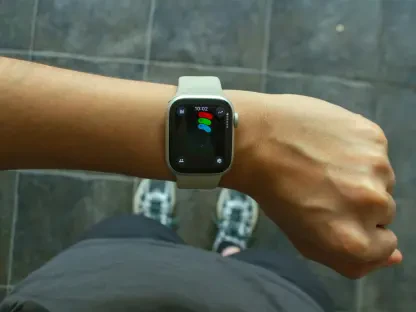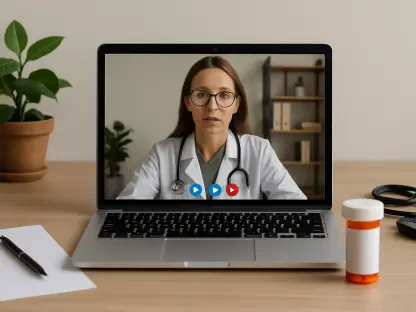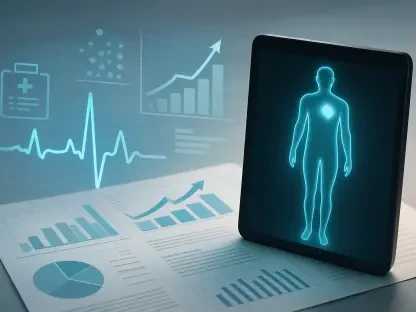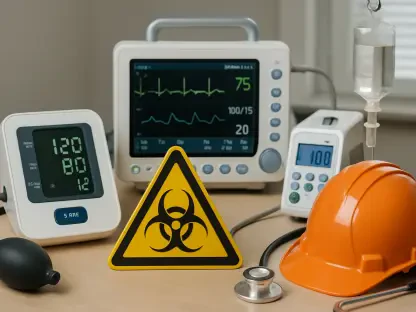The innovation introduced by Penn Medicine through its mobile mammogram van marks a pivotal moment for healthcare accessibility, particularly in Philadelphia and the surrounding regions. This initiative reflects the broader commitment by Penn Medicine to extend essential preventive health services directly to communities in need. Central to this effort is the annual community health fair in West Philadelphia, where this van will be unveiled. Scheduled for July 13, the event, now in its fourth consecutive year, collaborates with Community of Compassion CDC, providing a backdrop for offering a range of free health screenings. Attendees can take advantage of screenings covering areas such as breast, colon, prostate, lung, liver, and vascular health, among others, without the necessity of health insurance. This approach ensures that even those typically excluded due to lack of coverage can receive vital health assessments. The deployment of the van is not merely an expansion of healthcare services but a proactive approach to addressing health disparities and improving outcomes for underserved populations.
Community Engagement and Preventive Health
The new mobile mammogram van is not only about delivering mammograms but is also part of a larger initiative aimed at fostering community engagement and promoting preventive health. The annual health fair, with its array of screenings, including those for diabetes and hypertension, creates an environment where healthcare is accessible and approachable. Alongside the medical services, the event is infused with elements of engagement, entertainment, and education. The presence of attractions like free food, raffles, and the Philadelphia 76ers Entertainment Team adds to the draw, ensuring a diverse audience and making health education a community-centered experience. This blend of fun and educational outreach reflects Penn Medicine’s innovative strategy to demystify health screenings, encouraging higher participation and breaking barriers to healthy living. The recurring participation of the community demonstrates trust in such initiatives and highlights the vital role of interactive health promotion in enhancing community well-being.
Leaders in the health sector, such as Brian Englander, MD, emphasize the life-saving potential of accessible breast cancer screenings. The dedication of professionals like Linda White Nunes, MD, MPH, who organize these events, showcases the commitment to fostering trust and delivering essential care. Their efforts underscore the necessity of bringing these critical health services directly into communities, thus eliminating logistical and financial barriers. The mobile van’s presence at the fair and beyond signifies a profound advancement in health outreach, transforming the way communities interact with healthcare systems. Through these efforts, Penn Medicine continues to build upon its legacy of impactful community health services, setting a precedent for similar initiatives to follow nationwide.
Advancing Access through Technology and Partnerships
The introduction of this mobile mammogram van is made possible through strategic partnerships, notably with Siemens Healthineers, marking a significant evolution in Penn Medicine’s effort to reach underserved populations. Since 2021, nearly 1,000 free mammograms have been provided through partnerships, resulting in the detection of nine breast cancers, surpassing average detection rates. This success story points to the valuable impact that direct community engagement can have in addressing and overcoming health disparities. This mobile technology allows greater flexibility in delivering advanced breast-imaging services in community-centered settings, representing a substantial leap in healthcare accessibility for the region.
Historically, initiatives like the Breast Health Initiative have paved the way for providing critical screenings since 2014, focusing on underserved communities. Transitioning from reliance on larger units provided by partners, the new 34-foot mobile van provides increased autonomy, enabling Penn Medicine to offer mobile mammography with Siemens’ 3D technology. Designed to offer screenings in a private, air-conditioned environment, this van serves as a mobile health hub, breaking down the traditional obstacles that have hindered many patients from seeking timely mammographic screenings. The reduced barriers and enhanced portability represent an evolution in healthcare delivery, making high-quality diagnostic tools available outside traditional hospital settings.
Building a Sustainable Model for Future Outreach
The mobile mammogram van introduced by Penn Medicine marks a significant advancement in making healthcare more accessible, especially in Philadelphia and its neighboring areas. This initiative underscores Penn Medicine’s dedication to delivering critical preventive health services directly to communities that need them the most. At the heart of this endeavor is the annual community health fair in West Philadelphia, set to take place on July 13. Now celebrating its fourth year, this event partners with Community of Compassion CDC to provide an array of complimentary health screenings, including those for breast, colon, prostate, lung, liver, and vascular health, among others. Importantly, these services are available without requiring health insurance, ensuring people usually excluded from healthcare access due to lack of coverage can still receive crucial health assessments. This mobile van’s launch is not just about expanding healthcare services; it’s a strategic move to tackle health disparities and improve outcomes for underserved communities.









